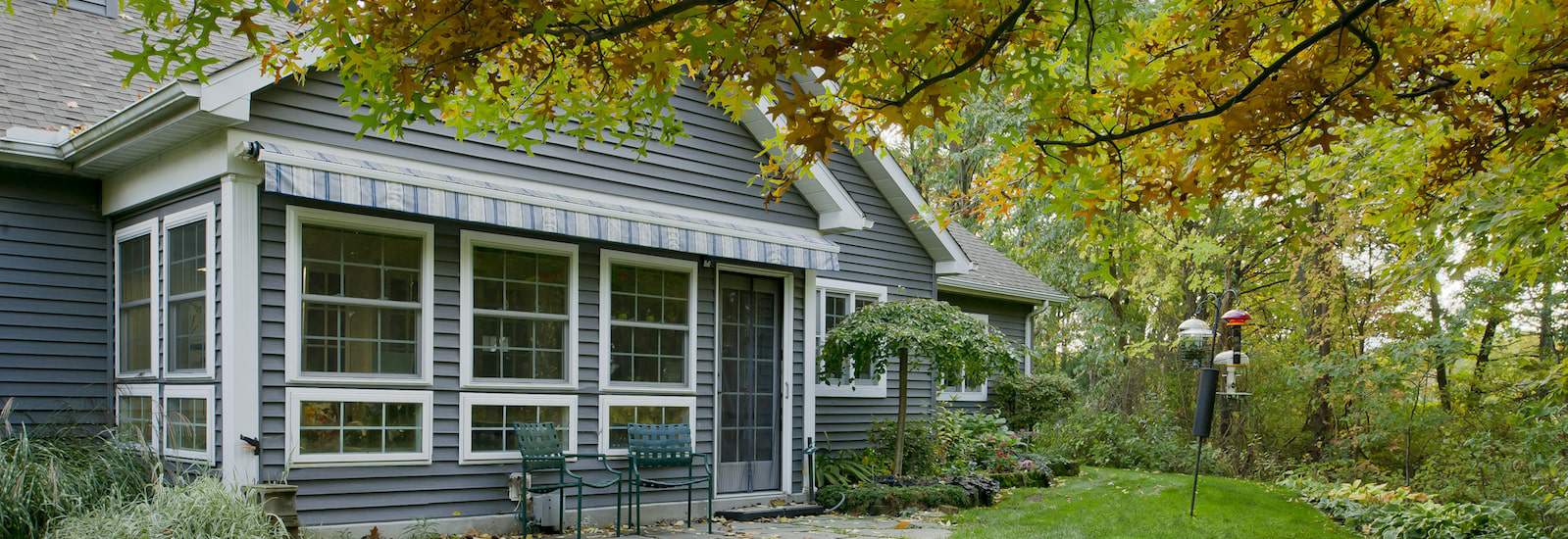
When Is it Time to Move to Senior Living?
Published: April 13, 2018
When Is the Best Time to Move to a Continuing Care Retirement Community?
Staying in your house as you age is an idea that sounds perfectly nice. And for some people it works out fine. But there’s a flip side. Simply put, your house isn’t getting any younger. It can quickly become a drain on both your financial resources and your energy.
You don’t want to be cleaning out gutters, mowing the lawn and fixing broken appliances for the rest of your life. It’s also worth considering what you plan to do if you encounter health problems or a medical emergency down the road. Will you be able to drive yourself to the doctor? Will you have the ability to maintain your house after a surgery or illness?
As you head into retirement, it’s important that you consider your next step in life before it’s too late to make a move that’ll benefit your health and well-being in the long run.
When is it Time to Move to a Retirement Community?
The earlier you begin to look at retirement communities, the better positioned you’ll be. A good rule of thumb is to begin your search at least 5 years in advance of when you want to downsize. This will give you plenty of time to research your retirement living options, go on tours of communities you like, narrow down your list and commit to the continuing care retirement community that fits your needs best.
You don’t want to wait until a health crisis or an emergency to try to move into a retirement community. If you wait this long, you may have trouble finding a community that fits all your needs, interests and financial situation, and you may struggle selling your home.
When Should I Sell My Home?
Speaking of selling your home, you’ll want to begin this planning as you get closer to deciding on a retirement community. Once you’ve reserved a home at a continuing care retirement community (CCRC), you should work with your financial advisor and a realtor to help you stage and sell your home and make a smooth transition into retirement living.
Delaying a home sale can open you up to market fluctuations, delayed maintenance costs and changing home buyer preferences. And between monthly expenses and routine, plus unexpected maintenance costs, you may be paying more to remain in a mortgage-free home than it would cost to make the move you’ve been considering.
If you’re wondering if you should sell your home, ask yourself the following questions:
Question 1: Does your house have the things you need to age safely and conveniently as you age? Single-floor living, accessible baths, kitchen and laundry, and security features?
Question 2: Could you easily live in your house if you were recovering from an injury that challenged your mobility?
Question 3: Do you have neighbors and friends close by who you routinely socialize with and a dedicated support network to help you age safely and well?
Question 4: Do you have reliable support for home maintenance and repairs?
Question 5: Have your home’s floor plan and features kept pace with new home buyers’ demands? Are you willing to invest the energy and money to make that happen?
The personal and financial costs of “not yet” can be much higher than you realize.
Are Retirement Communities Worth it?
The answer is unequivocally yes, and here’s why. People who are considering senior living often equate a community’s monthly fee to their mortgage. However, there are factors – and costs – that are often not part of that equation. For example, a mortgage pays for the roof over your head, but does not include maintenance costs. Nor does a mortgage cover real estate taxes, entertainment, transportation to area shopping or events, and amenities like a pool and fitness center. All of these, in addition to your residence and maintenance, are included in Asbury’s monthly fee.
We understand the attachment to your home. We hear from new residents say they never realized how much they would gain by “giving up” all that space. “I wish I had done this sooner,” is a phrase we hear often.
What is it Like Living in a Retirement Community?
Life at a retirement community means more freedom to do what you love without having to worry about home maintenance. CCRCs offer a vibrant atmosphere and an active lifestyle where you can indulge in educational classes, volunteer opportunities, exercise, social get-togethers and so much more, instead of cleaning your home and fretting over other daily responsibilities.
Our communities are designed to give you the independence you want without all the obligations that come with home ownership. Let’s take Asbury Methodist Village as an example.
Asbury Methodist Village is a CCRC in Gaithersburg, Maryland where you’ll find a thriving and engaging lifestyle. You can wake up and share a cup of hot coffee or tea with a neighbor. You can stay active with our yoga classes or by walking through our beautiful campus and Wildlife Preserve. And you can take part in hundreds of events, clubs, or interest groups.
And on top of all that, Asbury Methodist Village gives you peace of mind as you age. In a CCRC like this, you can live the life you want while knowing you have priority access to quality healthcare services, should the need arise. You’ll no longer have to worry about what you’ll do if you fall at home or become ill. At a CCRC like Asbury Methodist Village, your health will be taken care of, giving you peace of mind.
Get the Vibrant, Independent Lifestyle You Want at Asbury
It’s never too early to begin planning for your retirement future. Contact us to learn more about our continuing care retirement communities in Maryland, Tennessee and Pennsylvania, and schedule a tour today.
